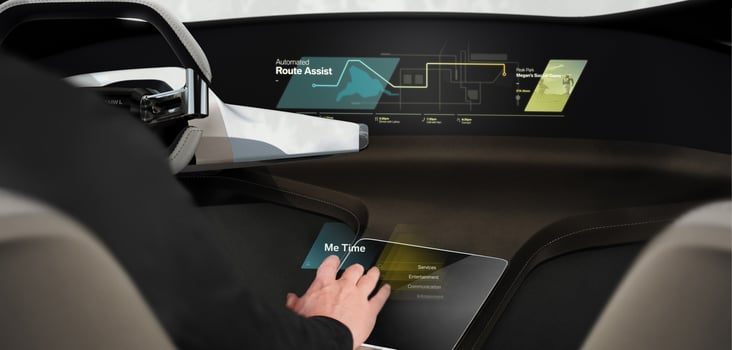
Image courtesy of BMW.
We’ve entered the mid-winter slump up here in the northern hemisphere, but don’t worry. Between news of major deals and investments and advanced vehicles making headlines at both CES and the Detroit Auto Show, things are certainly looking sunny for advanced energy in the week that was.
To start this week’s recap off we have Sunrun and National Grid, which have entered into a partnership worth about $100 million. National Grid, a natural gas and electric utility that has more than 20 million customers in New York, Massachusetts, and Rhode Island as well as the United Kingdom, has partnered with Sunrun to sell small-scale solar systems to residential consumers and small commercial customers. The initial goal is to install rooftop solar on 100,000 single family homes in downstate New York, but both companies expect something much larger soon.
National Grid is not the first utility to openly embrace and encourage installation of rooftop solar, but direct utility partnerships with solar companies are still relatively rare, as noted in Financial Times by Ed Fenster, Sunrun’s chairman, who noted that utilities usually shy away from the “intensely competitive” solar business.
Meanwhile, in Gigafactory land (Reno, Nev.), Tesla is planning to build a 70 MW solar farm… on the roof of the facility. The Verge reports that the rooftop farm will be the largest rooftop solar array in the world by about a factor of seven. The installation will allow the factory to be largely self-sufficient, storing extra electricity generated during the day in Tesla Powerpack batteries, which is convenient, as that’s what the factory produces.
Just a few hundred miles south in Las Vegas and a couple thousand miles east in Detroit, advanced vehicles have taken CES and the Detroit Auto Show by storm. As Extreme Tech pointed out, CES might as well stand for the Car Electronic Show. Both EVs and autonomous vehicles (and EVs with autonomous capacity) were on display, with USA Today claiming the frenzy over self-driving cars was “palpable.” Some highlights:
- BMW was one of the most visible companies at CES, with a booth flanking the main entrance to the convention center. The booth offered rides in their EV and hybrid EV models, the i3 and i8, to all attendees. A select few editors even got to test the autonomous 5 Series Beemer. Tech Crunch’s Darell Etherington writes, “I drove BMW’s prototype self-driving 5 series, and then it drove me.”
- Nissan displayed its use of NASA technology (the one that powers the Mars rover) to remotely take control in dangerous situations. The automaker’s self-proclaimed “double-zero” goal: “zero emission & zero fatality.”
- Both Nissan and Honda unveiled EV concepts with the power to give electricity back to the grid, acting as mobile storage units, the implications of which Greentech Media dives into here.
- Faraday Future premiered its prototype FF 91, a sleek EV model designed to give Tesla a run for its money. The company says the car is production-ready.
- Remember Amazon’s drone delivery service? Mercedes-Benz took a page from the Everything Store’s playbook and showed off a combination EV and autonomous delivery vehicle that doesn’t even need humans to load and unload packages. The vehicle is staffed by some honest-to-goodness robot arms and drones that are able to deliver packages, as well as accept a newly charged battery and slot it in place. (Don’t worry, a joystick allows for an operator inside the vehicle to take over if things get hairy.)
- Audi used an AI-guided vehicle to demonstrate how to make autonomous vehicles smarter and safer.
- VW premiered a long-range autonomous microbus full of nostalgia: the I.D. Buzz. With a max range of 270 miles and plenty of new tech, it could be the microbus for the new generation. But not everyone is convinced. The Verge points out that VW keeps making microbus concepts that the company may never put into production just to garner good feelings after the company’s clean diesel scandal. (Up until now, VW has taken all the heat for emission-test manipulation, but this week EPA told Fiat Chrysler that its clean diesel vehicles are not so clean after all. Fiat Chrysler denies that the software in its Jeep Grand Cherokees and Dodge Ram 1500 trucks constitute “defeat devices.”)
Subscribe to AEE Weekly to get all the news you need to know about the advanced energy economy.
